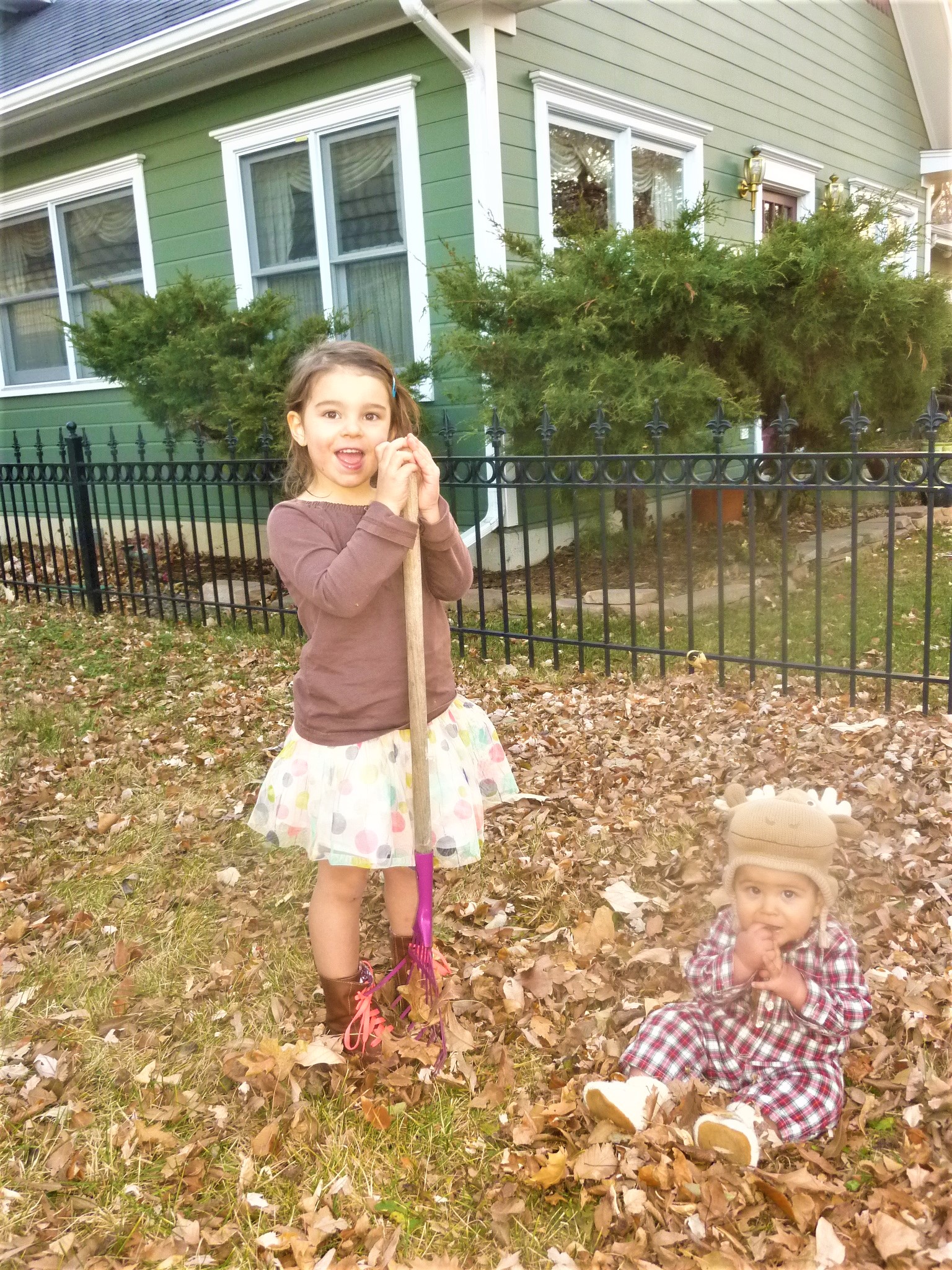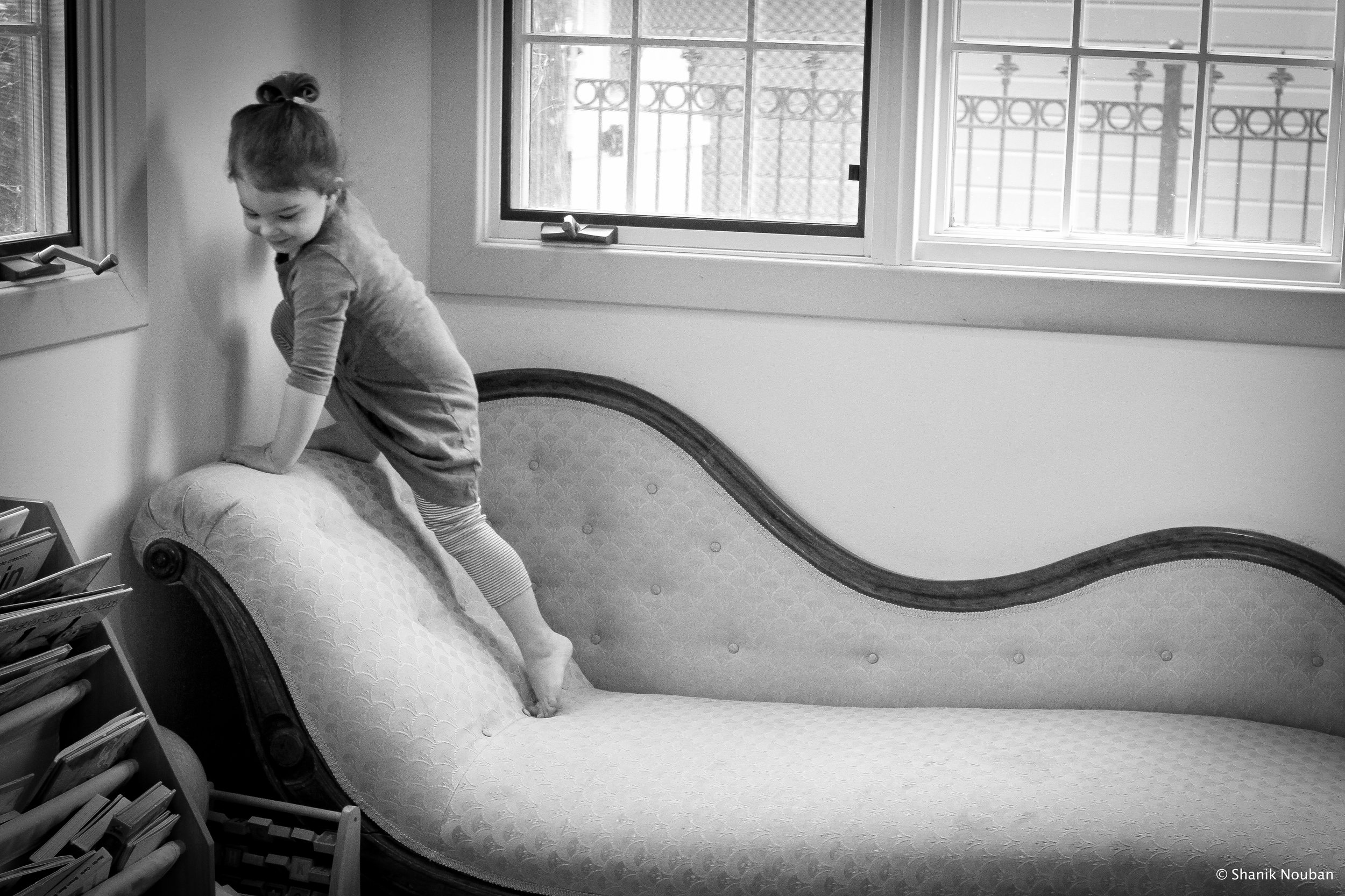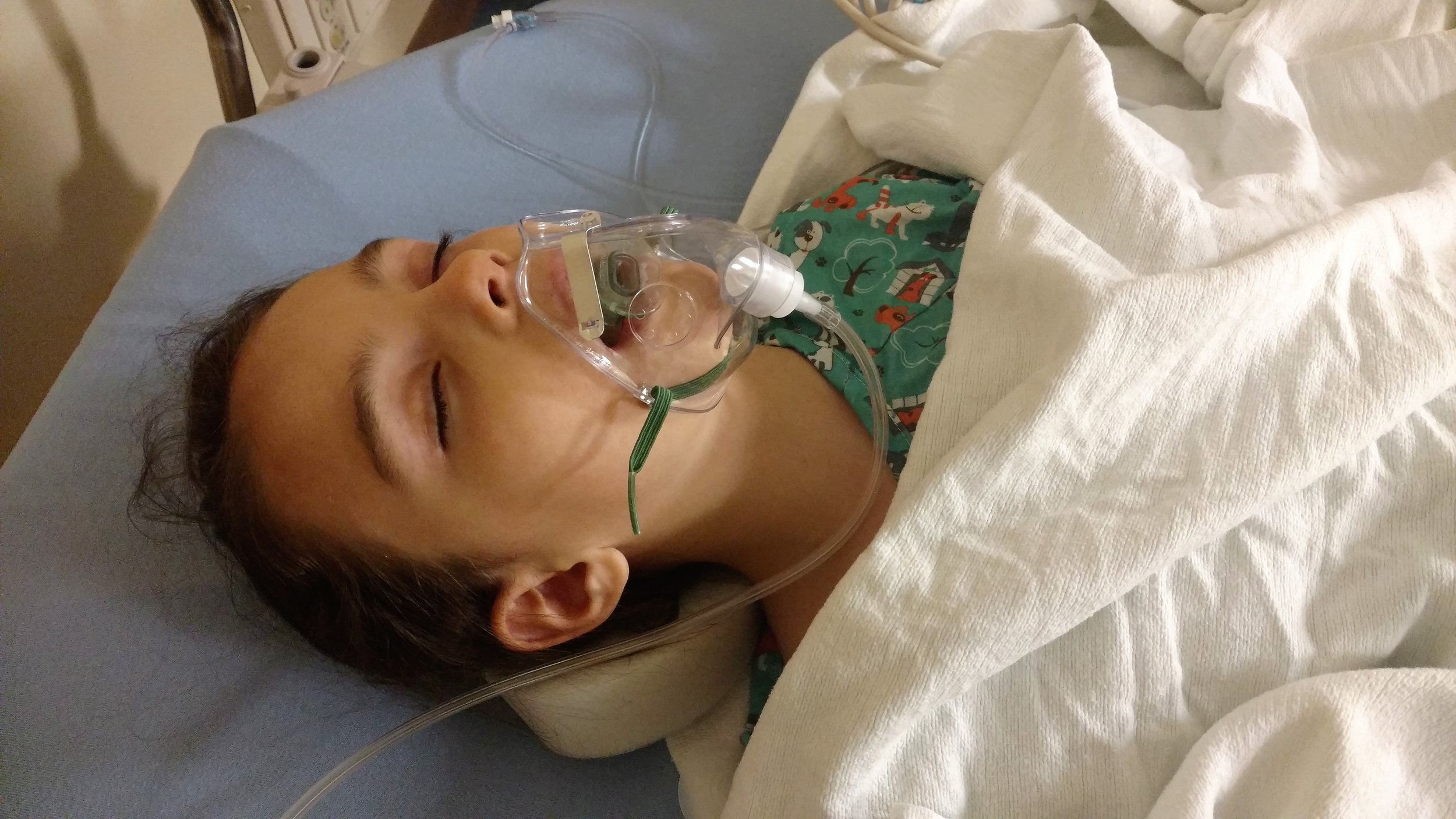I pushed the glass door open. As I walked inside, the warm smell of sweat and chalk rushed by me. The echo of children’s voices bounced around the wide open room. On the walls were colorful dots and spider-like kids with legs and arms clinging to rocks.
I had been here before. I remembered it like it was yesterday, but seven years had passed. I turned my head to the left and there was the wall that Mila had climbed to the top of when she was just two-years-old. Attached to her harness, we had watched her quickly make her way up the forty foot wall, carefully placing each foot on the climbing holds and stepping up, moving her hands and feet in unison until she reached the top. I smiled to myself as I remembered her excited face turning down to look at us only to realize that getting down might not be as easy as climbing up. “Just let go!” we coached her from below, explaining the automatic rope would lower her down. But she held tight, her instincts telling her that letting go made no sense at all. An instructor eventually climbed up and helped her down. With her feet finally on the ground, Mila looked up at us, beaming with pride. She had made it to the top, all by herself!
I turned to Azlan and pointed. “That’s the rock wall that Mila climbed up when she was two. Pretty amazing, right?” He looked up at me and asked, “She did?” I saw the wheels in his head turning.
After we left the climbing gym and got into our car, I asked Azlan if he was excited to start class. “I think I can climb better than Mila now. She can’t climb anymore.” he said. I could hear in his voice that he had been thinking about the Mila he couldn’t remember - the younger Mila who could run, sing and even climb. “When Mila gets better and doesn’t have Batten disease, she can climb up that wall again.” I stared down at my steering wheel in silence.
There was no rule book of how to explain to young kids why life sometimes breaks from the norm, why the circle of life for some could be so small. I would wake up early in the morning and find myself thinking of ways to tell Azlan about his sister. But I struggled every day to explain this to myself, so how could I find the right words to explain it to him?
I slowly breathed in, then out, and gave it my best, “You know Azlan, Mila will always have Batten disease. She won’t be able to climb up that wall again. But we are so lucky that she gets to have milasen and for now it seems to be making her life a little easier.” He thought about what I said, then continued, “I won’t have Batten like Mila. Well, at least for now I won’t. Will you and daddy have it?” he asked. “No, sweetie. You won’t have Batten, ever. Mila has it, but you don’t. And daddy and I don’t have it and we never will.” I explained. There was silence. “When Mila grows up and when I’m bigger, I’ll be strong enough to carry her, right?”
He paused. “Mommy. When Mila dies, it will be very sad.” he said. My heart dropped. I held my breath, paralyzed. All I could hear in the car was my heart beating. My nose tingled. My lips pursed. Tears filled my eyes and ran onto my face. Somehow he had made sense of his sister’s deep and complicated path on his own. The only visual memories he still had of his sister were those of her losing her abilities, one by one. The hospitals, the doctors, her treatments. My phone calls, my meetings, my late nights working in bed with the light on until the early hours. When he would ask where I was going when I got on an airplane, I would tell him that I was meeting with scientists and telling Mila’s story in hopes of helping her, of helping other kids with rare diseases like her. Of course he gets it. How could I have thought that he didn’t?
I had convinced myself that I was protecting him from the truth. But perhaps it was myself who I was trying to protect?
I took a deep breath and wiped my eyes, “We don’t know how long Mila will live. Some people live long lives, some live medium lives and some live shorter lives. But we do know that Mila is here with us today. She loves your voice more than anyone’s and pays attention to the stories we tell her and the songs we sing to her. And she feels our love all day, every day.”
An unexpected sense of both sadness and relief swept over me. My tense shoulders dropped. I had avoided this conversation for the last three years, but now I understood that the experiences in Azlan’s first six years of life had pushed against the boundaries of his child-sized world, opening up a reality larger than I had imagined. From the outside, he was any other kid, playing with Legos and trucks, reading about dangerous animals and adventures. But on the inside, he had been born into a house filled with confusion, grief and desperation, and had grown up to learn the delicate dance of pain and joy, of life and death.
Last Christmas, I had asked Azlan what he wanted from Santa. He answered right away. He only wanted two things - the most powerful Pokemon card and the strongest best medicine in the world to help Mila. “But I need to talk to Santa first,” he had said. “So I can tell him about Batten disease.”
Then I thought back to two years earlier, when we were living in Boston just after Mila’s treatment began. I had been in the car with Azlan, who was just three at the time, and from the back seat he said, “When I grow up, I want to be a doctor so I can help Mila. Mommy, what do you want to be when you grow up?” At forty-years-old, I laughed to myself and said, “That’s a good question. Mommy is kind-of grown up already, but when I grow up even more I’d like to work with doctors and scientists to help more kids like your sister.” Elated, Azlan quickly replied, “Oh! That means we can work together!” My heart soared.
Just the other day, Azlan and I were talking and out of nowhere he said, “Mommy, guess what I love more than anything?” I started listing the obvious answers - his favorite animals, insects, and dinosaurs. I kept guessing, but no luck. Finally, he said, “Life!”
In that brief moment, I realized that Azlan was going to be ok, more than just ok. His world wasn’t dark and sad like I feared. Instead, it was full of light and a love of life. His compassion for helping others was growing just by being part of the family and friends that loved Mila. Until then, I had felt that I had neglected Azlan as I raced to help his sister and now other children like her. But on that day, it hit me that despite the card he was dealt, Azlan had turned the trials and sorrow in his life into hope and happiness, and a true appreciation for how beautiful life really is.


























